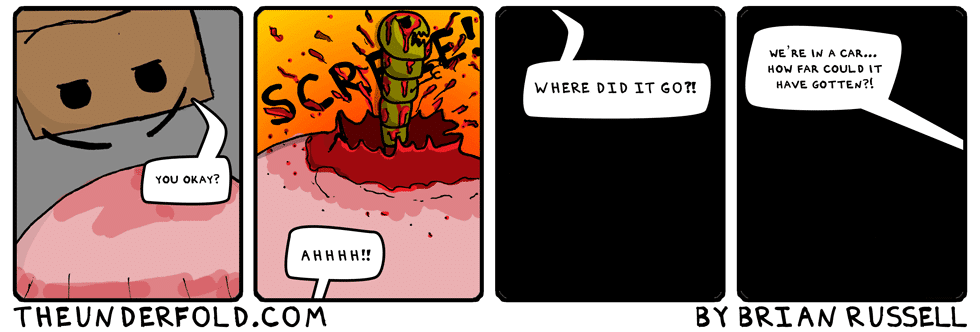Is Keeping Past Insurance Paperwork Necessary?

If you've ever found yourself wondering whether or not to keep that pile of old insurance paperwork or toss it in the shredder, you're not alone. Insurance documentation, from homeowners to auto and health insurance policies, represents a significant aspect of personal finance and protection. This comprehensive guide will navigate through the maze of insurance paperwork retention, helping you make informed decisions about what to keep, for how long, and why.
The Importance of Insurance Documentation

Insurance policies are contractual agreements between you and your insurer. They outline what events or losses are covered, the extent of coverage, deductibles, exclusions, and much more. Keeping track of these documents can serve several crucial purposes:
- Proof of Coverage: If an incident occurs, you’ll need to prove what your insurance covers.
- Historical Record: These documents can provide a detailed history of your insurance dealings, changes in coverage, and payments made.
- Legal Protection: Should there be any disputes or claims, having all your records can substantiate your case.
Before diving into specific retention periods, it’s important to recognize the value of maintaining your insurance documentation:
- Assures peace of mind by knowing your assets are protected.
- Helps in reviewing policy terms when updating or renewing coverage.
- Provides necessary information for tax purposes if you’ve itemized deductions for insurance premiums.
What Insurance Documents Should You Keep?

Here’s a breakdown of the various types of insurance documents and their recommended retention periods:
1. Homeowners Insurance

- Policy Declarations Page: This page summarizes the key aspects of your policy, including what’s covered and for how much.
- Amendments and Endorsements: Any changes or additions to your original policy should be kept.
- Bills and Proof of Payments: These can help with tax deductions and proving continuous coverage.
- Home Repair Records: Even if not strictly insurance-related, keeping records of home improvements can influence insurance claims.
Keep these documents for at least six years after the policy expires or the last significant claim was settled.
2. Auto Insurance

- Proof of Insurance Cards: These are needed to drive legally and to verify coverage after an accident.
- Policy Documents: Essential for understanding what’s covered and the limits of your auto insurance.
- Accident and Claims Records: Retain details of accidents, repairs, and correspondence with your insurer.
Retain auto insurance records for at least three years after the policy term or the incident, or longer if there are ongoing claims or litigation.
3. Health Insurance

- Explanation of Benefits (EOB): These provide a summary of what was covered, including premiums, co-pays, and out-of-pocket expenses.
- Bills, Receipts, and Claims Forms: You might need these to contest coverage decisions or for tax purposes.
- Health Insurance Certificates: Documenting your coverage, especially for those receiving employer-sponsored health plans.
Retain health insurance documents for at least 5 years, particularly for tax or audit purposes.
4. Life Insurance

- Policy Copies: To understand who the beneficiaries are, what’s covered, and policy terms.
- Payment Records: Document proof of premium payments to ensure the policy stays active.
- Beneficiary Information: Keep this current to ensure your estate is handled according to your wishes.
Life insurance policies should be kept indefinitely, especially while the policy remains active or while the policyholder is alive. Beneficiaries should also keep these documents after the policyholder’s death for claim purposes.
How Long Should You Keep Insurance Documents?

| Insurance Type | Recommended Retention Period |
|---|---|
| Homeowners Insurance | At least six years after policy expiration or claim settlement |
| Auto Insurance | At least three years after policy term or incident |
| Health Insurance | At least 5 years |
| Life Insurance | Indefinitely |

🔔 Note: Check with local regulations; some states or countries might have specific requirements for document retention.
Organizing and Storing Insurance Paperwork

Once you’ve decided what to keep and for how long, the challenge lies in organizing and securely storing these documents:
- Digital Copies: Scan documents to keep a digital backup, which can be password-protected or encrypted.
- Secure Storage: Use lockable storage solutions like a home safe, a safe deposit box, or cloud storage with strong security protocols.
- Filing System: Create a system that groups documents by year, type of insurance, or incident date.
🗂️ Note: Ensure your digital backups are regularly updated to avoid issues with obsolete formats or lost data.
Final Thoughts on Managing Insurance Paperwork

The decision to keep or dispose of insurance paperwork might seem daunting, but it’s an integral part of personal finance management. Properly cataloged and retained documents can provide a historical record, help in settling disputes, or even offer tax benefits. Remember:
- To retain documents as long as legally required or necessary for potential claims.
- To organize both physical and digital records systematically.
- To regularly review what you keep to ensure relevance.
By managing your insurance paperwork wisely, you’re safeguarding your financial interests and ensuring a smoother, more efficient claims process when needed.
Do I need to keep insurance documents for rental properties?

+
Yes, it’s advisable to keep insurance documents for rental properties. They serve the same purpose as homeowners insurance, providing proof of coverage, documenting claims, and helping with tax calculations related to rental expenses.
Can I shred old insurance paperwork after scanning?

+
If you have securely stored digital copies and the documents are past their retention period, shredding is an effective way to dispose of them, ensuring personal information is protected.
What should I do if I need to access an old insurance policy?

+
First, check your organized insurance archives. If you’re unable to find the policy, contact the insurance company. If the policy is with a company that has since merged or gone out of business, search for any public records or reach out to the state insurance commissioner’s office for assistance.



